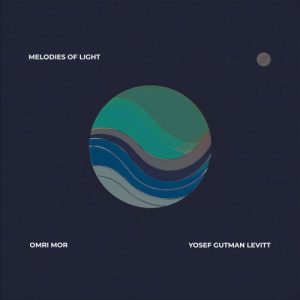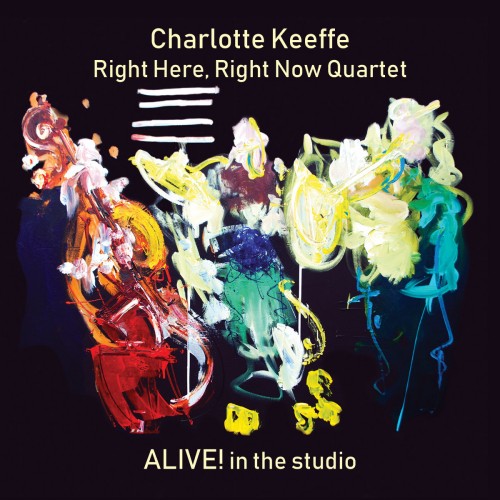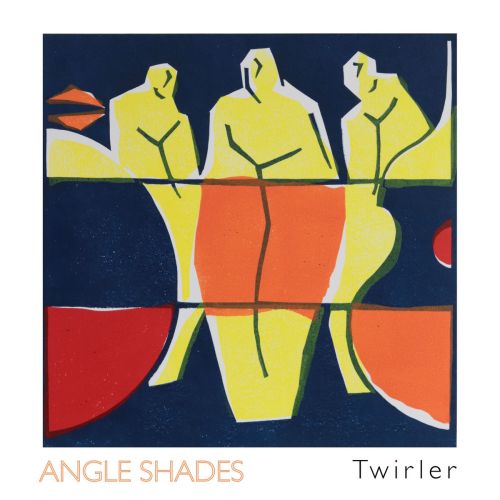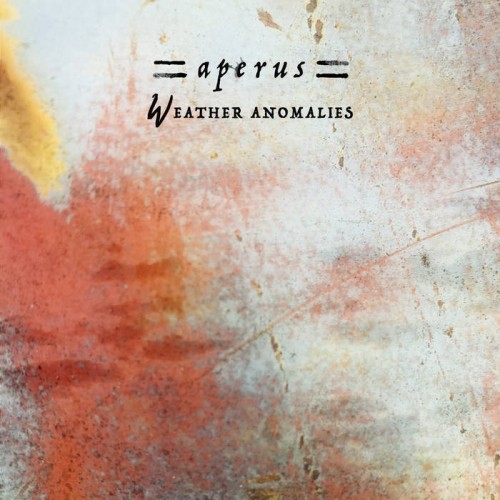 Israeli pianist Omri Mor was involved with the last Yosef Gutman Levitt album, lending his sunny piano to those cheerful, dusty tales. Here, the roles are reversed, with Yosef plus cellist Yoed Nir and percussionist Joca Perpignan adding subtle touches to the interplay between Omri and drummer Ofri Nehemya.
Israeli pianist Omri Mor was involved with the last Yosef Gutman Levitt album, lending his sunny piano to those cheerful, dusty tales. Here, the roles are reversed, with Yosef plus cellist Yoed Nir and percussionist Joca Perpignan adding subtle touches to the interplay between Omri and drummer Ofri Nehemya.
These pieces are Omri’s improvisations and it was he who suggested to producer Gilad Ronen that a drum / piano duo would be the perfect way to flesh out his bowl full of ideas. Yosef and Gilad took it one step further, not only adding instrumentation but directing the sessions in a way that would draw the best from Omri, allowing him to focus purely on producing keyboard magic.
The result is an incredibly varied and rather sensual journey through a musical mind. The use of different tempos as well as unusual time signatures means that there is never opportunity for things to stagnate and once again, there is much joy flowing through the session. You can’t help but feel that the players just love playing and a chance to be in the studio with Yosef and Gilad producing is one to savour, an atmosphere of inclusivity and comfort clearly prevalent.
Things start in a contemplative manner, the notes spare but ringing with easy warmth over a lengthy introduction where the supporting players are just as measured, and the combination of cello and bass lending a melancholy air. The piece is long enough to pick up pace and turn a corner, finding joy in the elegant percussive sweep. The influence of Omri’s hero Oscar Peterson can be felt in the romantic mood, that mood for two, warmly tucked away looking out to sea. There is something soul-stirring about this combination with the other players stepping in and providing brief counterpoints to Omri’s imaginative rolling runs, his subtle dexterity particularly noticeable in the upper register. A string and percussion-led dance piece sways and sashays around an open floor, the tabla sound effervescent in its uptempo additions. The hips start to swing as the piece moves in and out of time like a dervish. Their willingness to place disparate pieces back to back is what gives the album its flow. A downtempo, resonant heart-stirrer will follow, transporting the listener to a cold desert, sitting them under the stars and describing what they see with music. The piano playing is clever and the precise but perfectly natural flourishes make it such an easy listen, as do the unusual time signatures that are thrown in, sometimes novel to Western ears and embellished by metallic percussion.The pieces can be far more exploratory than you might think and a lot of this is down to the atmosphere in the studio and the safety net that the ensemble provides. There is no bright thought that Omri might have that isn’t capably dealt with by the others and this is the case throughout the seventeen pieces gathered for this album. The aridity of the drums in parts evoke Middle Eastern sunrises, the tempos and time changes are often linked with melancholy jazz tropes to give us something unexpected; our ear is expecting one direction, but the players choose another route, worlds meeting under the most auspicious of circumstances and moving easily down the road.
There is much generosity but nobody takes advantage, there are whimsical elements but life is always being celebrated and the sparse, ethereal parts lift the playing beyond the physical to a more temporal place, just briefly, before touching the earth again and feeling those vibration moving through. As an album, Melodies Of Light works really well and as a life-affirming collaboration it is even better, producers and players bringing the very best out of one another and showing Jerusalem to be quite the crucible of exploratory, heartfelt music.-Mr Olivetti-



